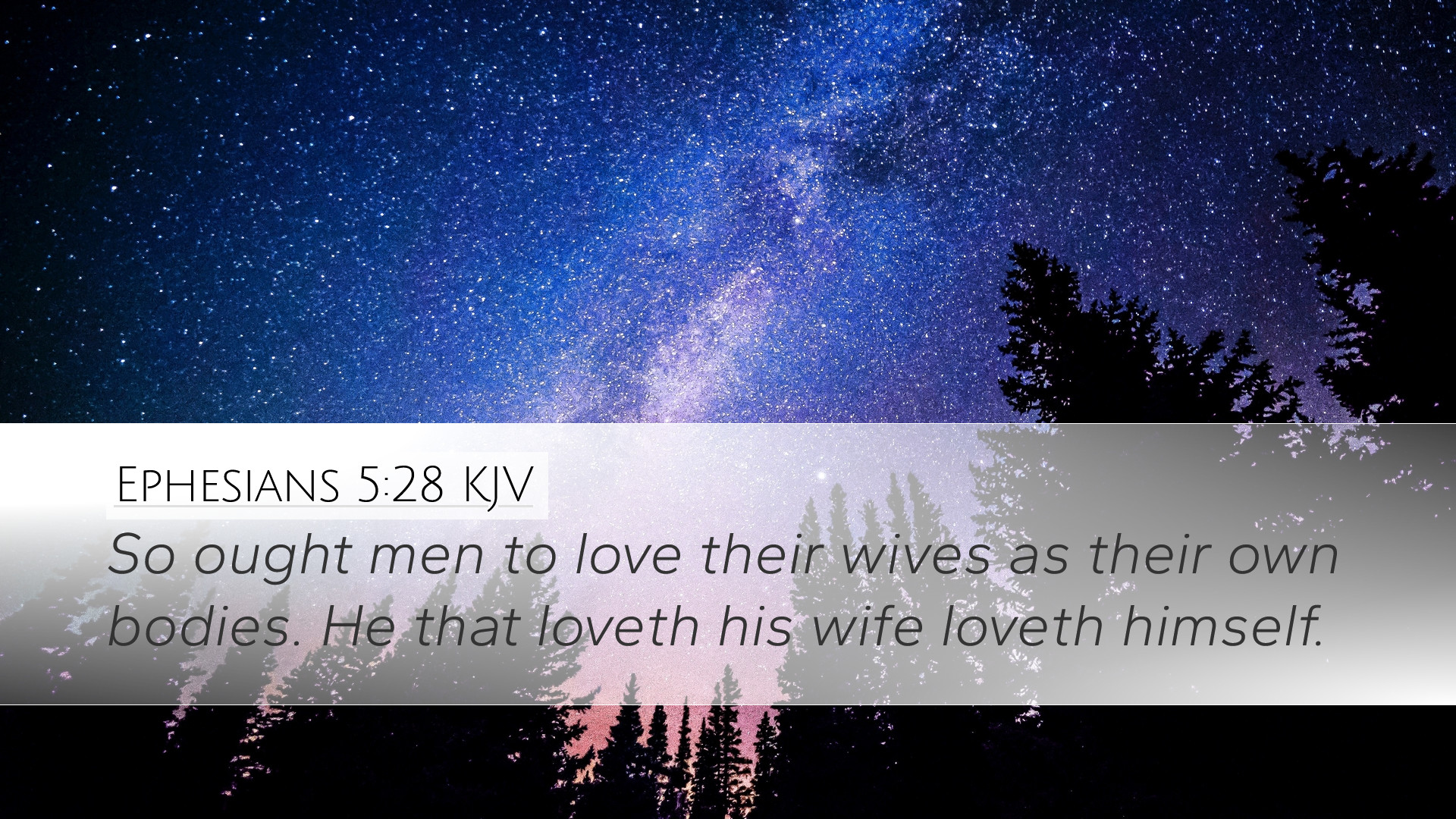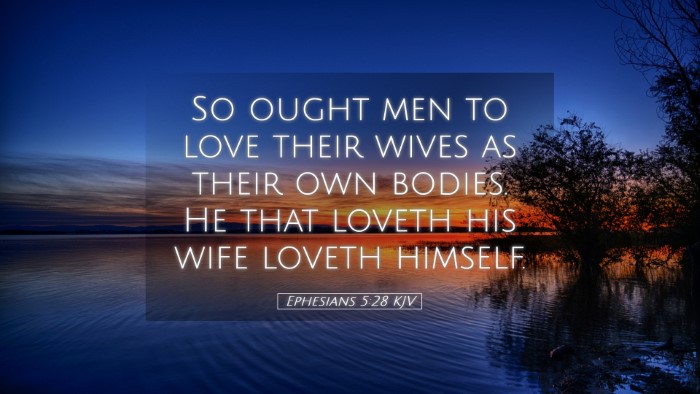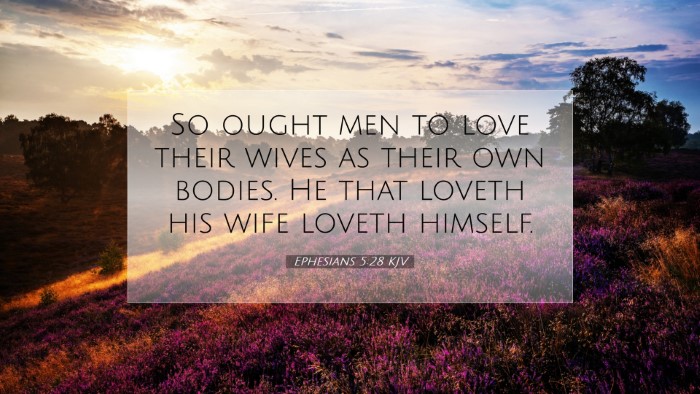Ephesians 5:28 - Commentary and Analysis
Ephesians 5:28 (KJV): "So ought men to love their wives as their own bodies. He that loveth his wife loveth himself."
Introduction
The verse from Ephesians 5:28 offers profound insights into the nature of love within the marital relationship. The Apostle Paul draws a significant parallel between a man’s love for his wife and the inherent love one has for oneself, particularly in the context of the body. This commentary synthesizes insights from several public domain commentaries to elucidate its rich theological implications.
Contextual Background
In the preceding verses, Paul outlines the responsibilities and reciprocal nature of marital love. The overarching theme in this section of scripture is to mirror Christ's relationship with the Church, emphasizing selflessness and unity.
1. The Duty of Husbands
Analysis of "So ought men to love their wives"
Matthew Henry notes that the apostle thrusts obligation upon men to love their wives with the same fervor that they hold for their own bodies. This love is not merely a feeling but should translate into actions that exhibit care, nurture, and protection.
- Selflessness: A genuine love demands selflessness and counteracts any tendencies towards selfishness or negligence.
- Spiritual Connotation: Likewise, the spiritual dimension of loving one’s wife as oneself reflects the unity that exists in the body of Christ.
2. Love as a Reflection of Self
Insights from Albert Barnes
Barnes elaborates on the idea that self-love is an inherent quality; thus, extending that care to one’s wife aligns with natural instincts. He emphasizes the reciprocity present in this relationship.
- Unity in Love: Just as a person naturally cares for their own body, there should be an instinctual drive to protect and uplift one’s spouse.
- Mutual Benefit: Barnes also highlights that loving one’s wife ultimately leads to self-love; a healthy marriage positively impacts one’s emotional and spiritual wellbeing.
3. Theological Implications
Insights gleaned from Adam Clarke
Clarke delves into the theological implications of this verse by asserting that proper marital love is a reflection of divine love. He posits that this instruction is not merely cultural but offers universal principles applicable across generations.
- Divine Example: Just as Christ loved the Church sacrificially, so too must husbands love their wives with a sacrificial intensity.
- Holistic Understanding: Clarke advocates for an understanding of love that encompasses emotional, physical, and spiritual domains.
4. Practical Applications
In light of the rigorous demands set forth by Paul, it is crucial for modern believers to seek practical outworkings of this verse in their daily lives.
- Communication: Foster open lines of communication that honor both partners' feelings and viewpoints.
- Acts of Service: Engage in acts of kindness and service to one’s spouse as an expression of love.
- Nurture Unity: Look for ways to cultivate unity and shared goals, reflecting the oneness described in Scripture.
5. Conclusion
The directives laid out in Ephesians 5:28 form an essential foundation for understanding marital love that God ordains. This love - rooted in selfless commitment and deep care - echoes the love Christ has for His Church, encouraging both husbands and wives towards mutual respect and honor.
As pastors, students, theologians, and biblical scholars reflect on this verse, it is essential to remember its practical implications as a guiding principle for all marital relationships, influencing both the church and society at large.


